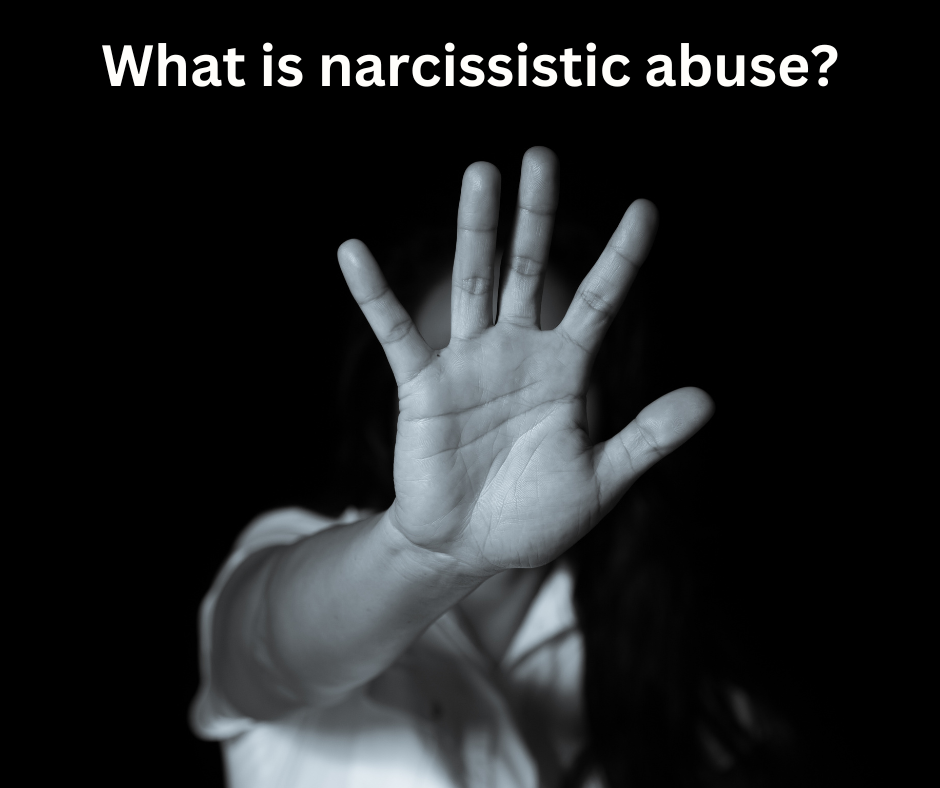This isn’t our usual content but as someone who works alongside a domestic abuse charity as part of my job, as well as having seen what narcissistic abuse can do to someone, I thought I would share some basics on what a narcissist is and what abuse carried out by them can look like.
The term narcissist can be overused but the reality is that anyone who causes deliberate or intentional emotional harm to another person, using the tactics mentioned below, usually has narcissistic tendencies.

Are narcisisits born that way or does their own experience of abuse or life experiences create them? That is a difficult question. I know people who have faced truama and abuse who have turned into abusers themselves, and people who have faced horrendous abuse who have not gone on to be abusers so it really is dependant on the person, I believe.
Narcissistic abuse is a form of psychological and emotional manipulation inflicted by individuals with narcissistic personality traits upon their victims. It is characterized by a pattern of behaviors aimed at exerting control, dominance, and power over others to serve the narcissist’s needs and desires while disregarding the well-being of the victim. This type of abuse can occur in various relationships, including romantic partnerships, familial dynamics, friendships, and workplace interactions.
One of the defining features of narcissistic abuse is the narcissist’s inflated sense of self-importance and entitlement, coupled with a lack of empathy for others. They often display grandiosity, arrogance, and a constant need for admiration and validation. To maintain their self-image and control over others, narcissists employ a range of manipulative tactics designed to undermine their victims’ confidence, autonomy, and sense of reality.
Gaslighting is a common tactic used by narcissists to distort their victims’ perceptions of reality and undermine their confidence. This involves denying or trivializing the victim’s experiences, feelings, and concerns, making them doubt their own sanity or memory. Gaslighting can lead victims to question their judgment and intuition, further reinforcing the narcissist’s control over them.
Another hallmark of narcissistic abuse is emotional manipulation and exploitation. Narcissists often employ tactics such as guilt-tripping, blame-shifting, and emotional blackmail to manipulate their victims into fulfilling their demands or conforming to their expectations. They may use affection, praise, or promises of change to lure their victims back into the abusive cycle after periods of mistreatment or neglect.
Furthermore, narcissists frequently engage in demeaning or devaluing behavior towards their victims, such as insults, criticism, and belittling remarks. This serves to erode the victim’s self-esteem and self-worth, making them more dependent on the narcissist for validation and approval. Over time, victims of narcissistic abuse may internalize these negative messages and develop feelings of worthlessness, shame, and self-doubt.
In addition to emotional abuse, narcissists may also engage in other forms of mistreatment, including financial exploitation, social isolation, and physical intimidation or violence. They may exert control over their victims’ finances, isolate them from friends and family, and use threats or acts of aggression to maintain dominance and compliance.
It’s essential to recognize that narcissistic abuse can have profound and long-lasting effects on victims’ mental, emotional, and physical well-being. Survivors of narcissistic abuse may experience symptoms of post-traumatic stress disorder (PTSD), anxiety, depression, and complex trauma as a result of their experiences. Healing from narcissistic abuse often involves seeking support from trusted friends, family members, or mental health professionals, as well as setting boundaries, reclaiming autonomy, and rebuilding self-esteem.
Narcissistic abuse is a pervasive and damaging form of manipulation characterized by the narcissist’s exploitation, control, and disregard for the well-being of their victims. When you begin to understand the tactics used by narcissists and seeking support, survivors can begin to heal and reclaim their lives from the cycle of abuse.
Narcisistic abuse can be perpetrated by men and women, it’s not specific to one gender. You are not alone if you think you are in a situation where you might be being abused and you can get help and support.
If you feel you are in an abusive relationship or are facing abuse and control from someone in your life, then you can reach out to the following organisations:
Refuge – National Domestic Abuse Helpline
Respect – support for men